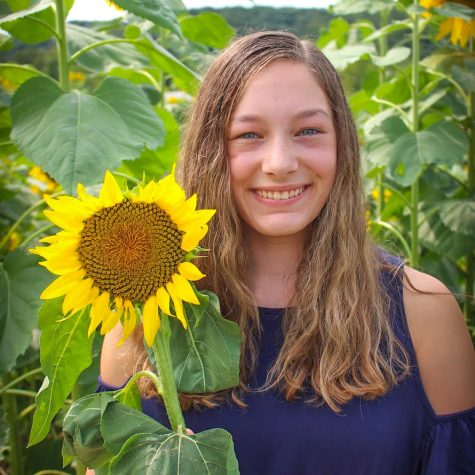Are the Covid-19 Vaccines safe?
March 2, 2021
Are the Covid-19 vaccines safe?
There have been a lot of people talking about the Covid-19 vaccines and a lot of rumors going around about them. The vaccines have not been released to the general public yet; the vaccinations have been rolled out through phases, starting with healthcare workers. So far, only 2 vaccines have been approved in the United States, Pfizer and Moderna. Some have expressed concerns over how new the vaccine is.
To start, let’s go through the science part of what a virus is. When a virus invades our body, it attacks and multiplies. When this happens, it is called an infection. The immune system uses lots of things to fight infections. One of these things is white blood cells. If someone gets infected with a virus, it can take up to several days or weeks for their body to make all of the white blood cells needed to get rid of the virus.
There are different types of blood white blood cells, like macrophages which are white blood cells that swallow up and digest germs and dead or dying cells. These white blood cells leave behind parts of invading germs called antigens. The body identifies antigens as “dangerous” in the brain and tells antibodies to attack them. Another type of white blood cell is B lymphocytes. These are defensive white blood cells and they produce antibodies that attack the pieces of the virus left behind by the macrophages. There are also t-lymphocytes which are also defensive white blood cells. They attack cells in the body that have already been infected. After you’re infected with a virus, your body uses all of these white blood cells to attack said virus, and your immune system remembers what it learned but how to protect the body against that disease.
The Covid-19 vaccines help to develop immunity against the virus that causes Covid-19 without us actually getting sick with the virus. A vaccine is just a weaker version of the virus or only parts of the virus that can’t make you super sick. There are different types of vaccines that work different ways, but with all the body is left with the different types of white blood cells that will remember how to fight the virus in the future. Since the vaccine and virus are both still new, it is hard for experts to determine how long these memory cells can protect the person against the virus that causes Covid-19. The FDA has recently authorized use of vaccines for the coronavirus that causes Covid-19. As of right now, both vaccines have around a 95% efficiency and success rate.
Of course, there are some downsides. Normally, it takes a few weeks for the body to produce T-lymphocytes and B-lymphocytes after vaccination. That means that it is still possible for a person to still be infected with the virus that causes Covid-19 just before or after vaccination and get sick because the vaccine did not have enough time to provide protection. Sometimes after vaccination, building immunity can cause symptoms like a fever. However these symptoms are normal and are a good sign. The body is building immunity and vaccines help with that. Also the vaccine is still new so we do not know if there are long-term effects, however there have been no signs of side effects. Scientists and doctors are telling anyone who received the vaccine to track and report any side effects they feel or experience. No one has had the virus in their system for more than 8-months so only time can tell us if there are long term effects. However, there have been several cases of anaphylaxis (a severe allergic reaction) after receiving the vaccine. Most of these cases were only if you went into anaphylaxis at some other point in your life or have allergies severe enough to cause anaphylaxis. These people are being asked to stay after for about a half hour to be watched to make sure they do not have an allergic reaction. There also have been reports of Bell’s palsy, which affects the nerves of the face. However, both of these are rare and are being investigated right now to see what causes these and what doctors and scientists can do to help stop these.
There are a lot of people concerned about how fast the vaccine was made. Some think that there were corners cut to help make this vaccine, and that is not true. For a vaccine to go into use, there are certain tests and standards that must be met before a vaccine can be declared safe. Organizations like the National Academy of Sciences, the National Institutes for health, and the FDA use scientific data from research to help decide if and when new drugs and vaccines can become available to the public. The process went faster because modern scientific tools are faster than the ones used to make vaccines during the influenza pandemic. There was also a widespread effort to reduce as many obstacles and barriers that normally slow down these processes. Also, a very large number of people volunteered to test the vaccines, which means that there were more answers to whether it was safe or not faster.
You have most likely heard about the influenza pandemic. There was no vaccine for the flu in 1918. People around the world were isolating, quarantining, wearing face coverings, washing their hands, and limited public gatherings. Sound similar to what is happening right now? Another example is polio, even though it is technically an epidemic. It came to a medical end because there was a vaccine developed. You can see today that the flu is not as big of a deal compared to 1918 because so many people get vaccinated every year. Lots of people still die from the flu each year, but the number is a lot smaller compared to 1918 because either people don’t get sick or the cases are less severe due to the vaccine. If someone gets vaccinated for Covid-19, gets infected, but only gets a mild case, then hospitals can focus their attention more on those who have serious cases of Covid-19. One of the reasons this pandemic is so bad is because healthcare workers do not have enough supplies to keep up with the number of patients in severe condition. When available, I suggest getting vaccinated. Until then, continue social distancing, wearing a mask, and avoiding public gatherings.
Citations
“COVID-19 Vaccine: What You Need to Know.” Johns Hopkins Medicine, www.hopkinsmedicine.org/health/conditions-and-diseases/coronavirus/covid-19-vaccine-what-you-need-to-know.
“Understanding How COVID-19 Vaccines Work.” Centers for Disease Control and Prevention, Centers for Disease Control and Prevention, www.cdc.gov/coronavirus/2019-ncov/vaccines/different-vaccines/how-they-work.html.
Gavin, Kara. Not Sure About the COVID-19 Vaccine? Get the Facts, Then Decide. 23 Dec. 2020, healthblog.uofmhealth.org/wellness-prevention/not-sure-about-covid-19-vaccine-get-facts-then-decide
“1918 Pandemic (H1N1 Virus).” Centers for Disease Control and Prevention, Centers for Disease Control and Prevention, 20 Mar. 2019, www.cdc.gov/flu/pandemic-resources/1918-pandemic-h1n1.html










